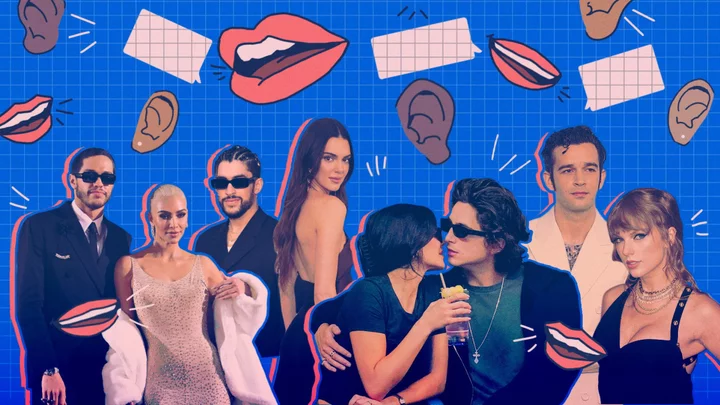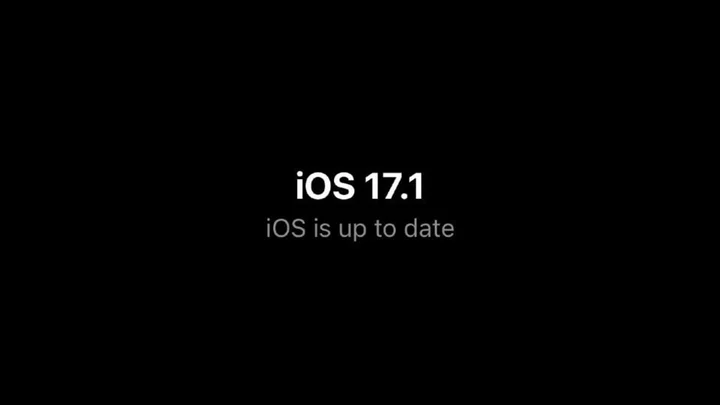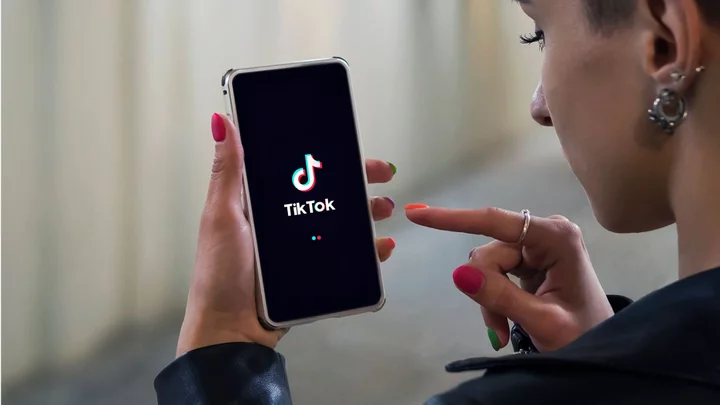There's a natural cycle to the launch of a new celebrity couple. It starts with a simple tabloid rumor. Then come observations on the pairing from a personal confidant, spread publication-wide, or maybe there's a jump to casual paparazzi pictures of the two together. The final push in the celebrity couple birth is the two attending a public event — a red carpet premiere or maybe … a sporting event. It's a tried and true formula that lets the world know this celebrity couple is here and ready for their close-up.
Those deemed unfit matches by fans will receive resistance at every step, most often with fans crying out, "PR relationship!" and enlisting their "expertise" to craft arguments as to why a budding relationship is staged.
Back in April, rumors swirled that cinema's French-American sweetheart and reality TV's star and beauty mogul were "hanging out and getting to know each other." If you're one to pay attention, you'll already be familiar with the buzz around Timothée Chalamet and Kylie Jenner's romance.
SEE ALSO: It's 'girl, we f*cking see them' summerEarly reports of the pair getting together were immediately met with skepticism and vitriol. Common refrains online included, "What do they even talk about?" and "There's no way they've ever been in the same room together." Yet the coverage kept coming, culminating in a much recorded hot and heavy make-out at Beyoncé's birthday concert. The couple has since had a handsy trip to the U.S. Open and attended Haider Ackermann's New York Fashion Week show.
The internet erupted. The actor's fans felt betrayed by the confirmation, with some Chalamet accounts going so far as to accuse Kris Jenner of blackmailing Chalamet into dating her daughter. More casual fans mourned Chalamet's move from single to taken. Others online sprung to knock fans down a peg.
No reaction caused more of a stir than the fan account @ClubChalamet's Instagram post: "If you're feeling distressed by the video, it's OK. But please take care of yourself. Step away from social media for a couple of days. Don't attack or criticize Timothée, too much money and time went into publicly harassing him and it finally paid off for those people." The text post's caption reads, "Deep breaths. This, too, shall pass."
But underneath the gossip-fueled fervor lay the vestiges of a deeper cultural shift when it comes to celebrity coupling, one that's produced by new uses of social media and misunderstandings about entertainment media at large.
Mashable tech reporter Elena Cavender and Mashable social good reporter Chase DiBenedetto explore the celebrity couple gossip machine and the obsession with "PR relationships."
The rise of the "It Couple"
Chase: In the age of the "parasocial relationship," it's easy to feel like intense celebrity worship is a new, rapidly-growing problem. Chalamet and Jenner represent the latest infatuation, but, as many scholars are quick to remind us, deep, one-sided connections with popular media and its stars extend centuries-back in time. In fact, celebrity idolatry has been a mainstay of the public consciousness since advancements in widespread literacy turned working classes into consumers.
"Democratization made people eager to track current events that they saw themselves as shaping," writes Columbia University Professor of English and Comparative Literature Sharon Marcus. "Celebrity culture would not have taken off without newspapers, but far from imposing curiosity about famous individuals on the public, newspapers used an already existing fascination with celebrities to attract more readers.
"In 1911, a theater producer explicitly speculated that the star system loomed so large in the United States because Americans were what he called 'an individual-loving people.' New visual media catered to that affection."
In the social media age, a Beyoncé star-studded concert was the perfect spectacle to launch Chalamet and Jenner.
Elena: And while the mechanisms of celebrity worship have changed — we have unprecedented access to celebrities via the internet and are encouraged to post about them — the Hollywood "It Couple" also has a long history. Just look at the decades-long infatuation with Elizabeth Taylor and Richard Burton, who first got together in the 1960s (and married and divorced twice). But even further back, fans speculated about the relationship between film stars William Powell and Myrna Loy, who were just friends despite playing a couple in 13 films throughout the 1930s and 1940s.
Chase: Later, as power couples in the 1990s and 2000s became the central discourse of entertainment television and tabloid news, on-screen pairings, industry connections, and shared red carpet spotlights seemed to signal romantic partnerships more than anything — think Cruel Intentions' Reese Witherspoon and Ryan Philippe, Gattaca's Uma Thurman and Ethan Hawke, or any of Brad Pitt's notable relationships. These frequent industry connections and the context by which they were revealed led to the public's recognition of what we now dub a "PR relationship."
Celebrity PR is a simultaneously unspoken, yet continuously pointed to, aspect of Hollywood and, now, social media. Celebrity publicists act as communication middlemen between the world's favorite stars and the general public. "PR relationships," before the Deuxmoi age of celebrity gossip, used to more concretely represent the merging of two celebrities' PR strategies. Back in the day, the phrase was used predominantly to refer to stars working together on upcoming projects and was intended to boost interest in those works — it could have been used on celebs like Powell and Loy.
The idea of a "showmance," as such, later evolved into something more broad: the fauxmance, as Grace O'Neill wrote for Harper's Bazaar. "Celebrity romance is a product that sells, and as A-listers have become more obsessed with milking their relationships for profit, the public have become equally as obsessed with unveiling the frauds."
Everyone is now an expert, thanks to social media
Elena: Then TikTok became central to that speculation. The platform got its hands on a new vocabulary word, "PR relationship," which always leads to the same thing: overuse and a loss of cohesive meaning. In the eyes of the celebrity-obsessed online, seemingly anything can be a PR relationship.
The excessive use of the term is heightened by a deluge of self-proclaimed experts. Creators with "a background in PR," like @MollybMcpherson, analyze celebrity moves from a "PR perspective." "Body language experts" examine photos and videos of the couple under scrutiny to assign legitimacy to the relationship. And of course, there is Deuxmoi, who parades herself as the keeper of industry knowledge, reports a long list of supposed "industry insiders," and speaks from her experience running her Instagram page to justify posting unfounded rumors.
That's not to mention how dumb the phrase "PR relationship" is: public relations … relationship.
Chase: Doesn't flow off the tongue when you say it like that.
Elena: It should be noted that these types of pop culture commentary accounts can quickly feed into dangerously misogynistic rhetoric. Just look at the hate campaign against Amber Heard, which was fueled by the circulation of content from "body language experts," "legal experts," and fans creating an anti-survivor sentiment online.
Chase: These creators — using that word intentionally, because, despite any expertise they may tout, they're still creating monetized content online — are feeding into a conflation of cultural commentary with entertainment and news reporting as all of it sits side-by-side in an individual's algorithm.
SEE ALSO: TikTok's infinite scroll spotlights a growing media literacy crisisFans and casual consumers of celebrity news have begun relying on aggregate social accounts like PopCrave to get their Hollywood info, often flocking to those profiles first instead of established publications. But accounts like PopCrave, and individual bloggers raking in views on sites like TikTok, aren't offering a discerning eye to Hollywood's PR cycle. PopCrave reports a TMZ rumor as equally as it does an exclusive interview with a director, a social media post the same as an official statement.
We've talked about this before, but these accounts also imply that anonymity (like the way fan and entertainment accounts repost anonymous DMs or unvetted observations) is a normal part of news.
Elena: There's definitely a fan misunderstanding of what celebrity news means coming from different entertainment publications. I am thinking of when both Entertainment Tonight and People independently reported that longtime couple Taylor Swift and Joe Alwyn broke up, and Swifties were adamant that it wasn't true and were waiting for confirmation from Swift herself … which is not how A-list celebrities traditionally communicate.
Then other stars reinforce this fan-generated notion that news should come straight from celebrities. For example, at a recent Jonas Brothers concert, Joe Jonas said, "I just want to say, look, if you don’t hear it from these lips, don’t believe it," seemingly in reference to negative press about his wife Sophie Turner after she filed for divorce.
The combination of the PopCrave style of spreading news, a lack of media literacy, and a celebrity's own social media presence breaks down the communication paths of celebrities.
Chase: Fans also view themselves as fluent in "PR speak" and the ultimate arbiters of "real" relationships: celebrities who have been together for a long time are "real"; stars who never post about their significant other are better off than others; and couples who seem to have more in common with each other, or, even, those who are similarly attractive, are not the product of the PR mill.
I think it seems to be getting worse because of the seemingly incessant celebrity couple news this year, with 2023 basically being the "Year of the Split."
Elena: So how does a couple beat the PR relationship allegations? I am thinking of Tom Holland and Zendaya here, as they costar as love interests yet seem to be the public's favorite couple in young Hollywood. To the internet, they are so obviously in love, and the way they engage with each other on social media helps. Despite their closeness on and offscreen and their rising fame, they are still an exception to the internet's stamp of PR relationship.
Delusion and conspiracy in fandom
Elena: The PR relationship ultimately becomes a tool to delude oneself when a relationship doesn't line up with someone's view of a celebrity. Whether it contradicts the fantasy that a fan will end up with the celebrity or doesn't align with the personality or values they've assigned to their fave, the PR relationship acts as a shield.
Then when that person has a platform as a fan account, it can lead to weird conspiracy content like we saw with @ClubChalamet. These people feign authority on their faves because they are devoted fans and consume all the content associated with that person.
SEE ALSO: We're living through an age of delusionChase: And when their reliance on the "PR relationship" fails, it usually leads to two different outcomes. They either ceremoniously break from the obsession (albeit often temporarily) or double down on their self-contained conspiracies, as you're saying.
For example, I think those heavily involved in fandom spaces are familiar with the widespread use of Hollywood "bearding" to explain away certain long-term relationships. While the practice has been used to closet celebrities, the liberal use of the term has even infiltrated Taylor Swift's fandom.
In yet another instance of a fandom's use of PR speak, many note the presence of Backgrid photo agency — a commonly used photo hosting site for the paparazzi — as a declaration of unreliability, arguing that these are hired cameras for celebrities (and their nefarious PR agencies) looking for attention.
Elena: With the exception of huge female celebrities like Swift, many of these conspiracies revolve around obsessions with men, which then leads to misogynistic takes in regard to their chosen partners.
Chase: The Taylor Swift and Matty Healy moment from earlier this year brought up so many of these issues on both sides, with each of the stars' fandoms seeming to split off into various camps — some felt betrayed by Swift, others argued for her right to have fun. Healy's fans were calling in their own views of the controversial singer, while some made note of the potential publicity benefits for a British rocker dating the beloved pop star.
Elena: He lets her bejeweled!
Chase: Like how Swifties felt that Swift dating Healy contradicted their vision of the singer, Chalamet's fans are processing the same association with Jenner. The actor's fans perceive the indie darling as having a much more worldly, debonair status than Jenner — a sincerity and artistry that, for some reason, lends the Academy Award nominee greater respect. For some, rectifying this vision of Chalamet with Jenner's role on social media has become the year's toughest mental battle. But those grasping onto the publicity angle have to ask themselves, what would all this "PR" be for? Does Denis Villeneuve's Dune 2 need a Jenner-Kardashian bump? Maybe Wonka's doing a Kylie brand collab?
Elena: With the ongoing WGA and SAG-AFTRA strikes, Chalamet has got nothing but time to be spotted with Jenner.









